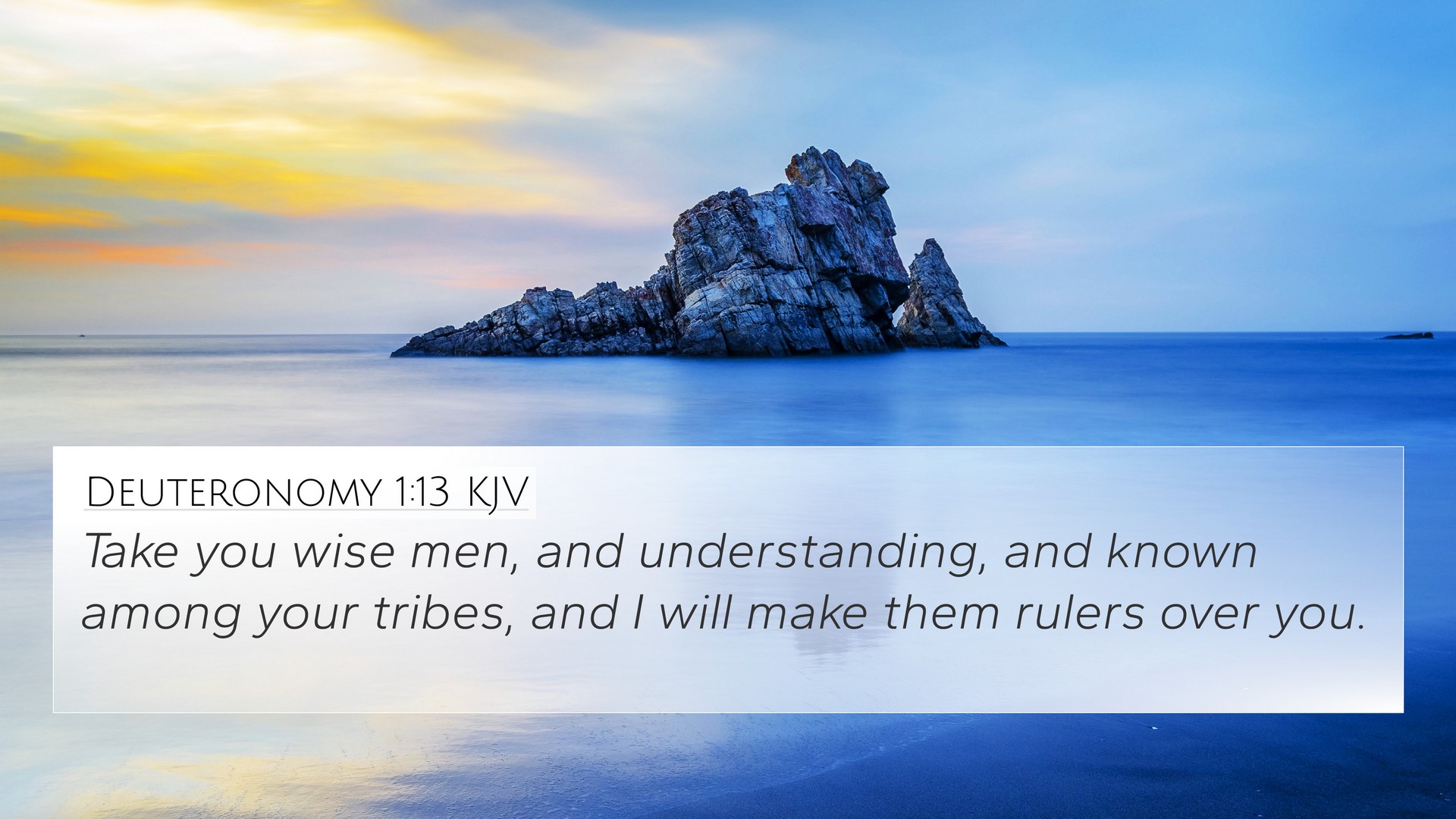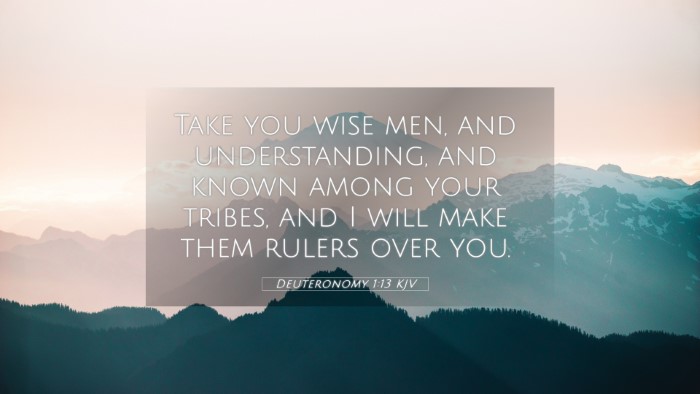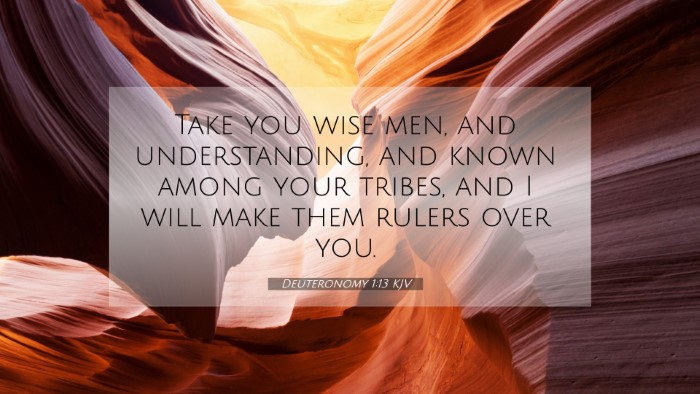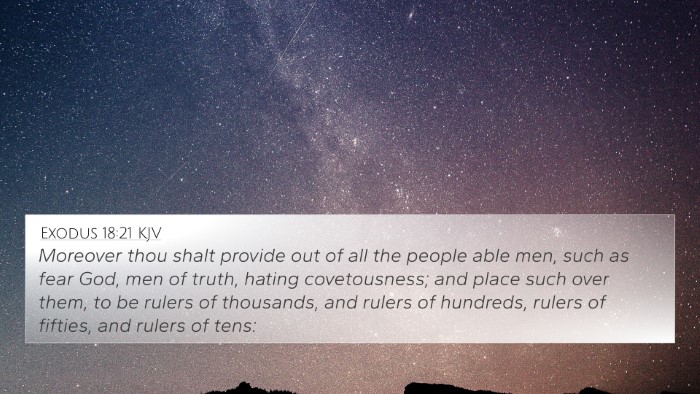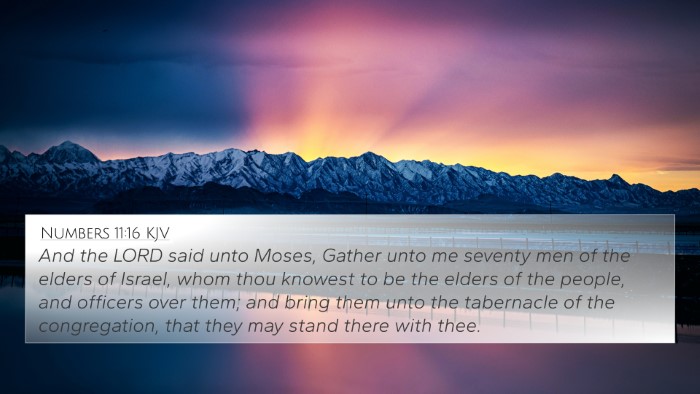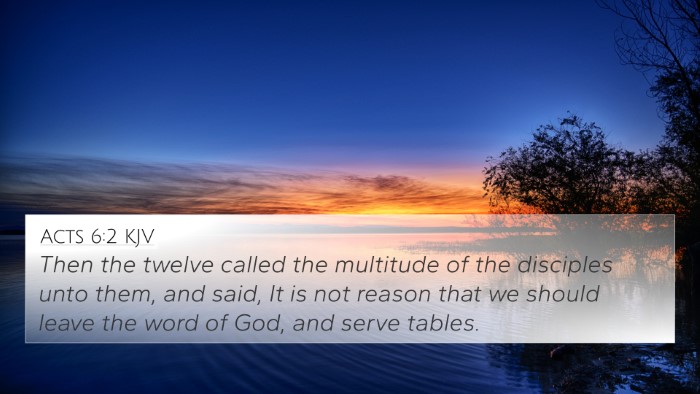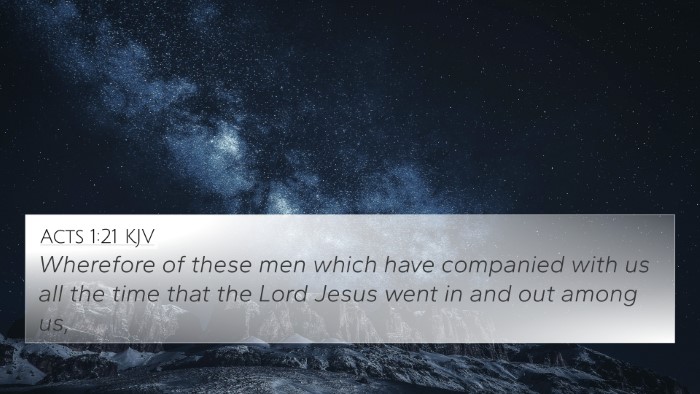Understanding Deuteronomy 1:13
Verse: “Take you wise men, and understanding, and known among your tribes, and I will make them rulers over you.”
Deuteronomy 1:13 serves as a significant verse in the context of leadership and the qualities necessary for those in authority. In this verse, Moses is instructing the Israelites to select leaders who are wise and knowledgeable from among themselves to guide and govern them. This instruction underscores the importance of having discernment and wisdom in positions of leadership, reflecting a biblical principle that is echoed throughout Scripture.
Key Themes in the Verse
- Selection of Leaders
- Importance of Wisdom and Understanding
- Community Involvement in Governance
- Divine Guidance in Leadership Choices
Commentary Insights
Matthew Henry's Commentary
According to Matthew Henry, this verse emphasizes the need for leaders who are not only wise but also respected among their peers. He interprets this passage as a clear directive that God's people should prioritize wisdom and good understanding in their leaders, as these qualities are essential for effective governance. Additionally, Henry suggests that this reflects God’s desire for order and structure within the community.
Albert Barnes' Notes
Albert Barnes notes that the selection of capable leadership is crucial for Israel's success; by choosing leaders known for their wisdom, the Israelites are securing a foundation for justice and righteousness within their society. He points out that God honors the input of the community in selecting their leaders, illustrating a collaborative relationship between divine will and human agency.
Adam Clarke's Commentary
Adam Clarke expands on the significance of the qualifications mentioned, asserting that wise men should exhibit understanding in moral and legal matters. Clarke emphasizes that these leaders should embody characteristics that reflect God’s law and principles, which are vital for maintaining order and promoting faithfulness within the community.
Bible Cross-References
This verse relates to several other passages that speak to the qualities and roles of leaders:
- Exodus 18:21: This passage highlights the importance of selecting capable and God-fearing individuals to lead and judge.
- Proverbs 1:5: "A wise man will hear and increase in learning, and a man of understanding will attain wise counsel."
- 1 Timothy 3:1-7: Offers qualifications for overseers, focusing on their character and ability to lead.
- Titus 1:5-9: Discusses the qualifications of elders and the importance of sound doctrine.
- James 1:5: Encourages the seeking of wisdom from God, relevant for leaders who must make discerning choices.
- 1 Kings 3:5-14: Solomon’s request for wisdom exemplifies the need for wise leadership.
- Psalm 119:66: Praying for good judgment and knowledge, crucial for effective leadership.
Connections Between Bible Verses
This verse exemplifies the interconnected nature of biblical teachings. The concept of wise leadership is echoed not just in the Old Testament but also in the New Testament, illustrating a continuous thread throughout Scripture regarding the attributes of those who govern and lead God's people.
Linking Bible Scriptures
This verse's insistence on wisdom in leadership can be cross-referenced with numerous teachings on humility and service found in the New Testament, such as:
- Mark 10:42-45: Jesus teaches His disciples about servanthood in leadership.
- Luke 12:42: The faithful and wise steward is entrusted with the care of others.
- Hebrews 13:17: A call to obey and submit to leaders who watch over their souls.
How to Use Bible Cross-References
When studying verses like Deuteronomy 1:13, one can employ Bible cross-reference tools to enhance understanding. This approach allows readers to appreciate the thematic connections and deeper meanings found throughout the text:
- Bible Concordance: Identify specific terms like “wisdom” or “leadership” to find related verses.
- Bible Cross-Reference Guide: Use guides that provide thematic connections among verses.
- Cross-Reference Bible Study: Engage in studies that focus on correlating themes across different books of the Bible.
Conclusion
Deuteronomy 1:13 lays the foundation for understanding the qualities essential in leaders chosen by the people of God. The insights gained from this verse, along with its cross-references, enable Christians to reflect on the importance of wisdom, understanding, and mutual involvement in selecting those who will lead according to God's will. This verse remains significant for contemporary discussions about leadership within the church and community.
